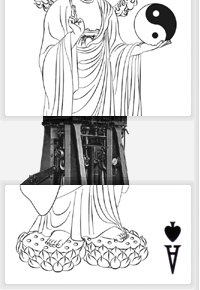Leading German Rabbi Condemns Pope's Good Friday Prayer(Spiegel Online International)
Jewish groups around the world have condemned Pope Benedict XVI's new version of a Catholic Good Friday prayer. SPIEGEL ONLINE talks to prominent German rabbi Walter Homolka about why the prayer is insulting to Jews and discusses alleged anti-Semitic tendencies within the Catholic Church.
Last month, the Vatican announced that Pope Benedict XVI had revised the so-called "Good Friday Prayer for the Jews" which forms part of the Tridentine Mass, often referred to as the Latin Mass. The new version, translated from the Latin, reads: "Let us also pray for the Jews: That our God and Lord may illuminate their hearts, that they acknowledge that Jesus Christ is the Savior of all men."
The new wording is similar to the original version of the prayer, which read: "Let us pray also for the faithless Jews: that almighty God may remove the veil from their hearts; so that they too may acknowledge Jesus Christ our Lord." This original version was toned down at the 1962-1965 Second Vatican Council which introduced many far-reaching reforms of the Catholic Church, including replacing the Tridentine Mass with vernacular liturgies. The Good Friday Prayer then became: "Let us pray for the Jewish people, the first to hear the word of God, that they may continue to grow in the love of his name and in faithfulness to his covenant."SPIEGEL ONLINE: Christianity is a missionary religion. Isn't it logical that it would also seek to convert Jews?
Homolka: No, because the controversial Good Friday Prayer completely ignores the unique status of the Jews as God's chosen people. God called us Jews to be a "light for the nations," so we certainly do not require illumination by the Catholic Church. The younger sister has clearly struck the wrong chord here.
SPIEGEL ONLINE: Jesus himself was of course a Jew and he proselytized among the Jews.
Homolka: Jesus put forward his arguments within the context of an internal Jewish dialogue. What the Church turned this into was something completely different. It made Jesus the rabbi into a deity. On top of that, it claims that the crucifixion of this rabbi is relevant to my personal salvation. Such teachings would have been news to Jesus.
Leading German Rabbi Condemns Pope's Good Friday Prayer
標籤:
轉載文章
訂閱:
發佈留言 (Atom)



1 留言:
基督教中容許歧視猶太人的源由可追溯至褔音書中,當耶穌在彼拉多前受審時猶太人震天怒吼「釋放巴拉巴」也不願釋放耶穌,如此猶太人就是罪大惡極的,反之羅馬政權卻是與此事無干的,為免後人將殺害耶穌與羅馬政權扯上關係,書中特意描寫彼拉多在群眾面前洗手並說:「流這個人的血,罪不在我,你們(猶太人)自己承擔吧」。前幾年電影《受難曲》就是以帶有強烈反猶太意識的次經《彼得褔音》為藍本花大篇幅交代此情節並高度表揚象徵羅馬政權的彼拉多。
事情卻不是如此簡單。大量的古抄本(包括古敘利亞文抄本、Caesarean text-type、教父 Origen 用抄本等)指出原著該是「釋放耶穌巴拉巴」,United Bible Societies 因此亦在《太 27:17》使用 "Jesus Barabbas"。然而,在猶太文獻中從來沒有「巴拉巴」作為姓氏的記載,「巴拉巴」本是指「父的兒子」,阿蘭文的 Bar abbas,一如耶穌在主禱文中自稱為「天父的兒子」,那麼當時的猶太人乃是在高呼「釋放父的兒子耶穌」。
猶太人可曾如此熱愛耶穌而響徹雲霄的高呼「釋放耶穌巴拉巴(父的兒子)」嗎?在耶穌回歸耶路撒冷時,猶太人就把衣服和樹枝鋪在路上讓祂和驢子走過,並高喊「高高在上和散那,奉主名來的是應當稱頌的」,此聲使「合城都驚動」 《太 21:10》,如此熱情的群眾又可會從高度挺主集體精神分裂地忽然轉軩至倒主呢?基於早期外邦人教會的信徒不懂原來阿蘭文的原故,這樣原來猶太人高呼「釋放耶穌巴拉巴(父的兒子)」之傳說就被說成是釋放一人物名為「耶穌巴拉巴」,並加入了「釋放耶穌巴拉巴」或是「釋放耶穌」二選一的情節,及後更刪除了「耶穌巴拉巴」名字中的「耶穌」一字。
如此修改的最大得益者就是當時保羅為首的外邦人基督教和後來政教合一的羅馬政權,不但將殺害耶穌的罪名推得一乾二淨,更同時將敵對的拉比猶太教及雅各派後人猶太基督教污名化,可是一舉兩得。
發佈留言